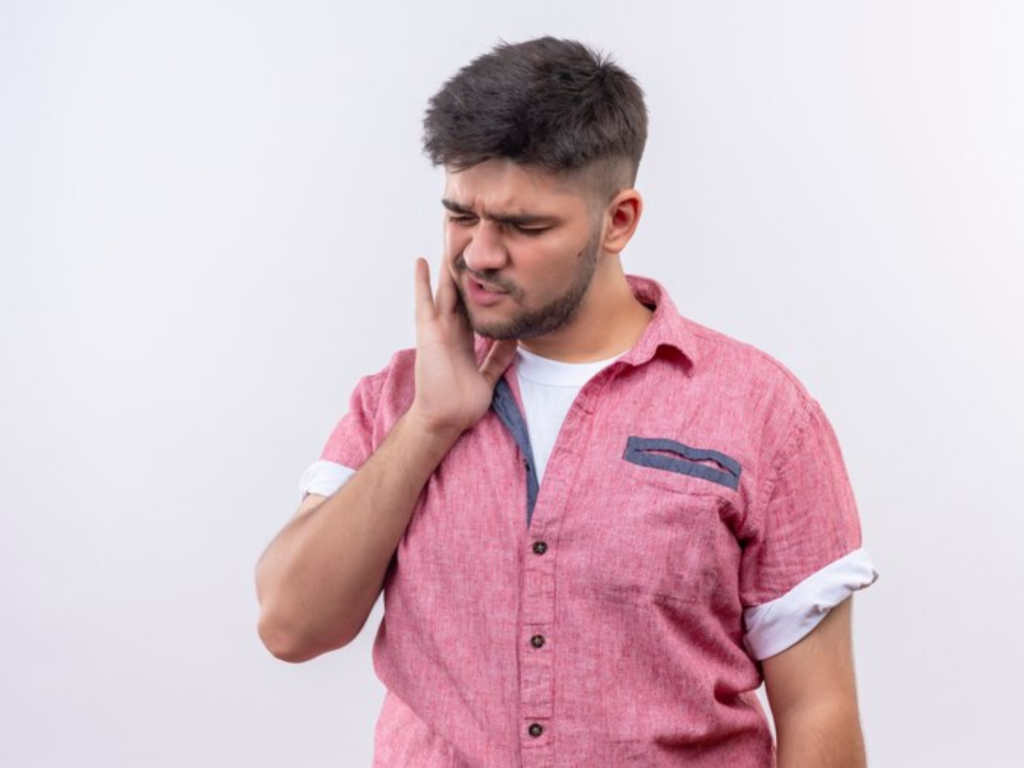Published on June 24, 2024

Experiencing ear pain after a tooth extraction can be a surprising and concerning experience for many. This discomfort, though seemingly unrelated to the mouth, can actually be linked through intricate nerve pathways and shared inflammatory responses. Understanding why this happens and what it means is crucial for anyone undergoing or recovering from dental surgery.
When a tooth is extracted, whether due to decay, infection, or other reasons, it’s not just the immediate area that undergoes changes. The intricate network of nerves that connects our teeth, jaw, and ears means that sometimes, pain in one area can radiate or refer to another. This phenomenon is especially common with lower teeth and molars, where nerves are closely intertwined with those affecting the ears.
Throughout this blog, we’ll explore the potential reasons behind ear pain post-extraction, what constitutes normal recovery, and when it’s essential to seek professional advice. By understanding these connections and symptoms, you’ll be better equipped to navigate the recovery process and distinguish between expected discomfort and signs that may warrant medical attention.
Anatomy and The Connection Between Tooth Extraction And Ear Pain
Understanding the intricate anatomical connections between the teeth, jaw, and ears provides insight into why ear pain can occur after tooth extraction:
- Dental Nerve Pathways: Nerves from the teeth and surrounding tissues are closely intertwined with those of the jaw and even extend to the ears. This interconnected network means that pain signals from dental procedures can sometimes travel along these pathways to the ears.
- Inflammatory Response: Following a tooth extraction, the body initiates an inflammatory response to heal the extraction site. Inflammation can affect nearby nerves and tissues, causing discomfort that may radiate to the ears.
- Positioning and Proximity: Particularly with lower teeth and molars, which are closer to the jaw joint (temporomandibular joint) and ear canal, pain or pressure from dental procedures can be perceived in the ear due to their proximity.
Common Causes of Ear Pain After Tooth Extraction

Understanding the causes of ear pain after a tooth extraction involves considering several dental and physiological factors:
Dental Factors:
- Proximity to Jaw Joint: Extraction of lower molars or wisdom teeth, which are close to the temporomandibular joint (TMJ), can sometimes lead to referred pain in the ear due to shared nerve pathways.
- Surgical Trauma: During extraction, manipulation of tissues and nerves around the tooth can irritate adjacent structures, potentially causing discomfort that radiates to the ear.
Inflammation and Healing Response:
- Post-operative Inflammation: Following a tooth extraction, the body triggers an inflammatory response to aid in healing. Inflammation in the extraction site and surrounding tissues can lead to swelling and sensitivity that may affect nearby nerves, contributing to ear pain.
- Impact on Adjacent Tissues: Inflammatory mediators released during the healing process can affect neighboring tissues, including those connected to the ear via nerve pathways, exacerbating the sensation of ear pain.
Expected Recovery Symptoms
During the recovery period following a tooth extraction, it’s common to experience several post-operative symptoms, including:
Pain and Discomfort:
- Mild to moderate pain around the extraction site is normal and typically peaks within the first 24 to 48 hours post-procedure.
- Some individuals may also experience referred pain in the ear due to the close anatomical proximity and shared nerve pathways.
Swelling and Inflammation:
- Swelling of the gums and surrounding tissues is expected, reaching its maximum within 48 hours after the extraction.
- Inflammation can extend to adjacent structures, potentially affecting nerves that transmit sensation to the ear, leading to discomfort.
Bruising and Sensitivity:
- Bruising of the skin around the extraction site may occur, along with heightened sensitivity to touch or temperature changes.
- Sensations of pressure or fullness in the ear may also accompany these symptoms due to the interconnected nerve pathways.
When to Be Concerned?
It’s essential to be vigilant for signs that ear pain after tooth extraction may indicate a complication, warranting prompt dental or medical attention:
- Persistent or Worsening Pain: Ear pain that intensifies over time or does not subside with prescribed pain medication may indicate an infection or nerve damage.
- Fever and Chills: Systemic symptoms such as fever, chills, or night sweats can signal an infection spreading beyond the extraction site.
- Painful Swelling: Severe swelling around the extraction site, accompanied by throbbing ear pain, may indicate a localized infection or abscess.
- Difficulty Opening Mouth: Limited jaw movement or difficulty opening the mouth fully can be a sign of temporomandibular joint (TMJ) disorder or muscle spasm, potentially affecting the ear area.
- Pus or Discharge: Presence of pus or foul-smelling discharge from the extraction site suggests infection and requires immediate evaluation by a dentist or oral surgeon.
Managing Ear Pain After Tooth Extraction
Managing ear pain after tooth extraction involves several strategies to alleviate discomfort and ensure optimal recovery:
- Pain Management: Use prescribed pain medications as directed to reduce ear pain and discomfort effectively.
- Cold Compress: Applying a cold compress to the affected area can help numb the pain and reduce swelling.
- Rest and Elevation: Resting with the head elevated can alleviate pressure on the extraction site and minimize ear pain.
- Hydration: Drink plenty of fluids to stay hydrated, promoting overall healing and reducing inflammation.
- Follow Post-Operative Care: Adhering to post-operative care instructions provided by your dentist ensures proper healing and prevents complications.
Dealing with ear pain after tooth extraction can be concerning, but understanding its causes and following proper care can ease discomfort. Always consult your dentist if symptoms persist or worsen.
